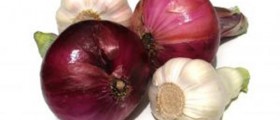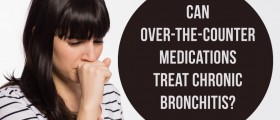
Chronic cough and conservative methods of treatment
Which method of the treatment will be suggested depends primarily on the cause of chronic cough, which is why it is necessary to determine it, if possible. If it is not possible to pinpoint the cause, then the doctors usually suggest either some cough suppressant or some medication that affects the air passages in the lungs and relaxes them. Other available treatment options include antihistamines, decongestants, inhaled corticosteroids and even medications for the treatment of acid reflux.
As for antihistamines and decongestants, they are usually combined when the person is diagnosed with some allergy or postnasal drip.
Inhaled corticosteroids are particularly effective in cases of asthma and cough that is related to this condition, but it is important to know that prolonged use of these medications is likely to increase the chances of bruising, osteoporosis, and even cataracts. Regarding the medications for the treatment of acid reflux, they are suggested when this problem is present along with chronic cough or when it is the cause, and most frequently suggested are proton pump inhibitors.Whichever the case, the patients are advised to avoid the triggers of coughing, or to minimize the exposure to them if it is impossible to avoid them. People who smoke should quit smoking if they do not want to have this problem for the rest of their lives, and in order to avoid the blockage of the airways, it is recommended to sleep on several pillows so that the head would be elevated.
Home remedies for chronic cough
A teaspoon or two of honey mixed with a cup of hot milk relieves the cough if drank before going to bed. A mixture of two tablespoons of aloe vera juice and two tablespoons of honey is also helpful for cough, as well as for scratchy throat. Honey can be mixed with minced garlic and if consumed this way, it will relieve the cough. Another mixture that also includes honey, and which is also helpful in the treatment of chronic cough, includes cinnamon and fresh lemon juice. Two teaspoons a day until the cough disappears are a recommended dosage. Peppermint oil and olive oil should be mixed in equal quantities and as such used for the massage of the chest area more than once a day. Thyme oil can be used as a part of inhalation therapy, or for massage of the chest area as well, because it is helpful in the treatment of chronic cough.- medlineplus.gov/cough.html
- www.nhs.uk/conditions/bronchitis/
- Photo courtesy of Joe Loong by Flickr: www.flickr.com/photos/87957708@N00/2294973605















-Help-Treat-Your-Cold-Or-Flu_f_280x120.jpg)

Your thoughts on this
Loading...